
Bozeman, Montana-based RightNow Technologies is a major player in the on-demand CRM space. In an interview with CRM Buyer, RightNow CEO Greg Gianforte explained that unlike hosted CRM leader salesforce.com, which has its roots in sales force automation, RightNow focuses primarily on providing a complete offering for contact centers — agent-facing applications as well as customer-facing ones.
In a nutshell, Gianforte said, his company allows organizations to use what they know about their customers, in the form of phone transcripts and e-mail records, to anticipate service inquiries and initiate upsell and cross-sell actions.
Gianforte also discussed a host of broader topics with CRM Buyer, including the CRM market as a whole and the future of the on-demand software model.
CRM Buyer: How has RightNow seen the market for hosted CRM evolve in the past year?
Greg Gianforte: Hosted CRM really began at our inception in 1997. In the past year, we have seen what have traditionally been thought of as barriers to adoption really crumble and fall away. The objections we used to hear were around customization, integration, security [and] not having control over the upgrade process. Slowly, through working with our customers, we’ve shown them that they don’t lose control of the application in a hosting environment. If the systems are in place, they actually have better control of an application in a hosting environment than they would in an on-premise environment.
CRM Buyer: When putting together an enterprise application portfolio strategy, do you think hosted CRM solutions offer enterprises an advantage in terms of integration and interoperability?
Gianforte: Yes. The environment we operate in, on the customer-service side of CRM, has historically been more complicated than the integration and customization issues that occur in a sales force automation environment. What a customer-service agent needs on his or her desktop is all the information a customer may ever ask about. So that tends to be a broader swath of information that tends to be stored in multiple systems throughout the organization.
For example, a customer may call up and say, “Where’s my order?” or, “Has it shipped yet?” or, “Do you have this in inventory?” Those are common questions in a customer-service organization. We’re finding that, in building the desktop for the agent in a customer-service organization, we have to by necessity build bridges to the accounting system or inventory management system to answer those questions.
For a large manufacturing concern right now, we are building a bridge to Oracle financials. So they’re using Oracle financials to do the transactions of the business, they’re using the RightNow on-demand CRM solution to be the customer record, but then we’ve bridged the two together so the agent is only one click away from order history information.
CRM Buyer: In response to industry trends, how has RightNow changed over the past year?
Gianforte: We have seen consistent expansion in our business. Just in December, we finished our 20th consecutive quarter of revenue growth, and it was our seventh consecutive quarter of cashflow-positive operations. Some of the operational changes we have seen in our business is that our solutions are becoming much more mission-critical for our customers.
For example, we work with a lot of the online travel agencies, some of the top travel agencies. We’re so integrated that if our system is not up and operational, they cannot process an order for a ticket. So we’ve seen increased expectations for reliability and scalability in our systems, as well as the types of services our customers are asking us for. It has gone much beyond how we configure the software. Part of our responsibility is to ensure that customers actually get business results from the deployment. We have dramatically expanded our services offerings so that we can actually go in and help with business process redesign and bring to the table the expertise we have from having done over a thousand deployments.
Over the last two years, we have transitioned from a purveyor of technology to a partner who can be trusted and consulted on all issues related to delivery or efficiency of customer-service operations.
CRM Buyer: What kinds of servers do you use?
Gianforte: We maintain two primary hosting facilities, one on the East Coast and one on the West Coast. They are all load-balanced so that there are multiple levels of redundancy. In addition to geographical redundancy, there is redundancy inside the data center. We run a number of different systems, primarily Linux, all on large numbers of blade servers that create a very fault-tolerant environment that gives us very high reliability.
CRM Buyer: Which companies would you characterize as RightNow’s primary rivals, and how is RightNow approaching this competitive challenge?
Gianforte: There are three types of competitors that we see. The first are traditional ERP vendors that are doing customer-service solutions, and they are who you would expect: Siebel, Oracle, PeopleSoft. And we beat them because our solutions install much more quickly and cost much less to maintain because of the on-demand model.
The second category are the traditional CRM vendors who offer client-server apps, like Remedy or ClarifyCRM, and honestly those guys have been around for five to eight years, and those products are basically end-of-life. Most customers are going out and looking for replacements. We don’t see them competing for green-field opportunities.
And then the third category are these new-breed on-demand CRM companies, and really, we don’t compete directly with any of those guys today because, whether it’s Siebel On-Demand or salesforce.com, they are focused on sales force automation (SFA), and we are focused on customer-service automation.
CRM Buyer: So, conceivably, a customer may use you for customer-service automation and salesforce.com for sales force automation.
Gianforte: They could. There are many cases where a company is supporting one set of customers but sells to a different, [smaller] set. For example, in any consumer goods company, the job of customer service is very hard because you might have millions of consumers for Procter & Gamble [products] … whereas [you can count the companies P&G actually sells directly to] on a spreadsheet — it’s Wal-Mart, Target and some national wholesalers, a very short list. It doesn’t even make sense to use the same database for customer service as you do for SFA.
CRM Buyer: What types of companies are RightNow’s target customers — SMBs? Large companies?
Gianforte: Historically, we sold primarily to middle-market companies, and we realized the buying characteristics of departments in a Global 2000 are nearly identical to the buying characteristics of middle-market companies. They tend to want solutions that go in quickly. They don’t want to pay a lot for customization. They are ill tolerant of integrations because integrations tend to be brittle and expensive to maintain. So today about half of our customers are from the middle-market, and half are out of divisions in the Global 2000. And we typically serve companies that have between five and 500 dedicated people in their customer-service organization.
CRM Buyer: Do you have a lot of outsourcing customers?
Gianforte: We have deep relationships with many of the top outsourcers. In fact, we just announced what we believe to be the largest deal ever done by an on-demand CRM company with Convergys. It’s a milestone, not just for RightNow Technologies but for the whole industry. There has been some question on whether this on-demand model can scale up. We already have 2,000 seats deployed at Convergys. It’s a rubicon for the on-demand market because the question of being scalable has lingered. Last year we served over 200 million customers on behalf of our clients. That’s a large system in anybody’s book.
Domestic outsourcers are recognizing that, in the face of competition where they might be moving contact centers offshore, they have to bring to their clients a solution set that can allow them to maximize the efficiency and the quality of service they deliver. And these sorts of automation efforts really allow you to do that.
CRM Buyer: Generally, do you see your customers switching to you from client-server CRM deployments, or is RightNow their first foray into CRM?
Gianforte: They are typically replacing their Remedy or Clarify, or they had some kind of homegrown system, or they are replacing Siebel. In certain cases, it is a green-field opportunity where they are starting up and need to get a system up and running. But generally, large organizations we have worked with have some kind of system in place already that is end-of-life because it is typically client-server.
Or they might use our solution as the tool to handle Web and e-mail. There’s this classic problem when a customer calls up and says, “I sent you an e-mail two days ago, and I would really like to have the answer,” and the rep on the phone has no record of the e-mail. This multichannel approach we have solves this problem. So these customers use us for e-services and someone else for phone services, and they want to bring those two together. Either they displace us somehow and use the phone channel for everything, or they expand their e-service implementation to take over the phone channel, and that latter one tends to be the one that occurs.
CRM Buyer: Salesforce.com just announced its IPO. What are your thoughts about taking RightNow public?
Gianforte: We are the second largest on-demand CRM company in the world behind salesforce.com. We did about US$36 million last year in revenue, and we are significantly cash-flow positive. Becoming a public company we believe is a natural step in the maturation of our business, and we are watching salesforce.com very closely.
CRM Buyer: CRM data contains all sorts of private and sensitive information. What steps does RightNow take to ensure privacy of that data?
Gianforte: We serve a lot of different organizations, from government agencies to financial institutions to consumer goods companies to medical products companies, so there is a lot of sensitive customer data. We take security very seriously. We have a very clear security policy posted on our Web site. We recently filled a position of chief security officer, who is primarily responsible for establishing and enforcing the security policy. We contract with third parties to attempt to break into our hosting systems, and, of course, if there are any issues, we promptly correct them. We treat the data that we store on behalf of our customers as if it were our own. And we recognize we have a critical responsibility to them to preserve the security of it.
CRM Buyer: Now that so many barriers have crumbled, what do you believe to be the most pressing issue in the hosted software market right now?
Gianforte: One of the areas that has generally been a problem is the issue of dealing with upgrades. In mission-critical applications, it is unreasonable for a hosting vendor to arbitrarily decide … to give everyone an upgrade of the software all at the same time. We have had to take some special measures through our hosting management system that allows our customers to schedule their upgrades or to skip an upgrade altogether and do it on their schedule. This is something we have not seen from any of the other on-demand vendors, but for the on-demand model to totally replace the traditional enterprise software model — which I believe it will do in the next five to seven years — this problem is going to have to be solved.
CRM Buyer: RightNow is based in Bozeman, Montana, rather than a typical high-tech enclave, such as Silicon Valley. Has your choice of location had an impact on the company’s culture?
Gianforte: It has been a tremendous advantage. We run an ad in the Seattle newspaper and get 400 resumes. We get to pick the best of the best. Our turnover is very low.
But I think the best thing about Montana is a lot of people that we hire have grown up in the Rocky Mountain West, many of them on farms or ranches. During harvest time, when the tractors break, you don’t call a consultant. You don’t form a committee. You just fix the tractor. And our customers have told us over and over again they really appreciate our work ethic. And I don’t think we would have been successful building that corporate culture anywhere but Bozeman.


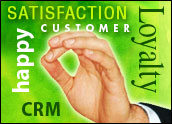
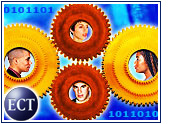

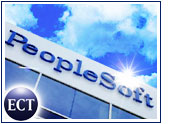

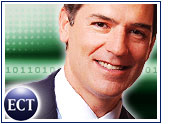

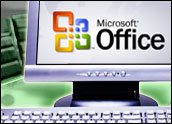




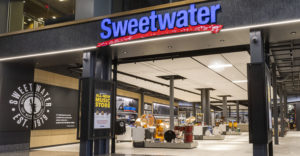






































Social CRM
See all Social CRM